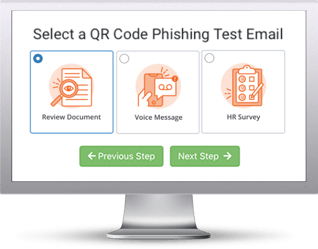 In the ever-evolving landscape of cyber threats, scammers and hackers are relentless in exploiting every avenue of communication. From emails to texts, calls to QR codes, malicious actors are finding new ways to compromise your privacy and security.
In the ever-evolving landscape of cyber threats, scammers and hackers are relentless in exploiting every avenue of communication. From emails to texts, calls to QR codes, malicious actors are finding new ways to compromise your privacy and security.
One such emerging threat is the rise of QR code phishing attacks, a blend of QR codes and phishing designed to trick individuals into revealing sensitive information.
The Mechanics of QR Code Hacks
QR codes, those familiar black-and-white grids, act as digital hieroglyphs that, when scanned, reveal a variety of information such as website URLs, plain text messages, app listings and map addresses. However, the danger lies in their ambiguity—QR codes can lead to fraudulent websites as easily as genuine ones.
Creating a malicious QR code requires no specialized skills; the tools are readily available, making it as simple as scanning one. Once created, the malicious QR code can be disseminated through various means, ready to trick unsuspecting users.
The ultimate goal of these scams remains unchanged: to compromise the security of your accounts or devices. Whether through enticing downloads or phishing for login credentials, the intent is to exploit unsuspecting victims through a seemingly innocuous QR code.
Defending Against QR Code Hacks
Earlier this year, a major US energy company fell victim to a QR code scam, signaling a growing trend in these types of attacks.
The good news is that the security practices you should already have in place can protect you from falling prey to QR code hacking. Just as you exercise caution with emails and instant messages, approach QR codes with skepticism, especially if they come from unverified sources.
Always be wary of QR codes in suspicious emails or on dubious websites. Trustworthy establishments, like your local restaurant, are unlikely to distribute QR codes generated by hackers. Be cautious of messages that create a sense of urgency, urging you to scan a QR code to verify your identity or prevent account deletion.
Keeping your software up to date is a simple yet effective defense. Modern mobile web browsers come equipped with built-in technology to identify fraudulent links. While not foolproof, staying current with browser and mobile operating system updates enhances your chances of receiving warnings about potentially unsafe web locations.
In the face of the evolving threat landscape, staying informed and maintaining vigilance are your best defenses against the insidious rise of QR code phishing attacks. New-school security awareness training can ensure your users know what to do when they see a suspicious QR code in their inbox.
KnowBe4 enables your workforce to make smarter security decisions every day. Over 65,000 organizations worldwide trust the KnowBe4 platform to strengthen their security culture and reduce human risk.
Wired has the full story.
 Here's how it works:
Here's how it works:




